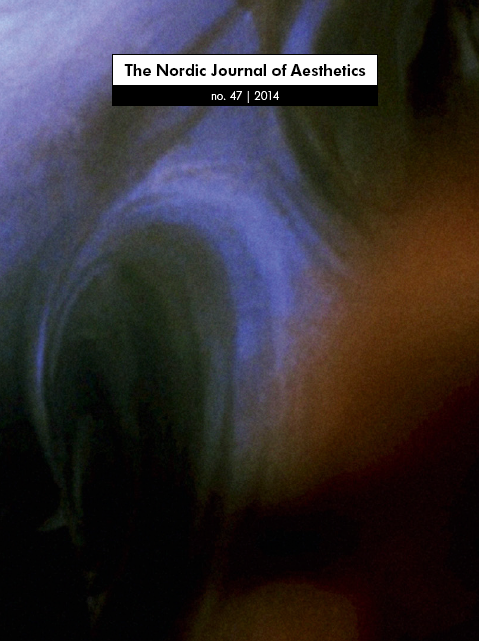The Force of Digital Aesthetics. On Memes, Hacking, and Individuation
DOI:
https://doi.org/10.7146/nja.v24i47.23055Abstract
The paper explores memes, digital artefacts that acquire a viral character and become globally popular, as an aesthetic trend that not only entices but propels and molds subjective, collective and political becoming. Following both Simondon and Bakhtin, memes are first considered as aesthetic objects that mediate individuation. Here, resonance between psychic, collective and technical individuation is established and re-enacted through the aesthetic consummation of self, the collective and the technical in the various performances of meme cultures. Secondly, if memes are followed in the making, from birth to their spill-over onto wider social networks, the very expressive form of meme turns out to be borne by specific technical architecture and mannerisms of a small number of platforms, and, most notably, the image board 4chan. The source of memes’ various forms of power is concentrated here. Memes are intimately linked to 4chan’s /b/ board, the birthplace of Lulzsec and the Anonymous hacking networks. Memes’ architectonics, as an inheritance of a few specific human-technical structures, in turn informs the production of new platforms (memes generators), forms of networkedDownloads
Published
2016-01-26
How to Cite
Goriunova, O. (2016). The Force of Digital Aesthetics. On Memes, Hacking, and Individuation. The Nordic Journal of Aesthetics, 24(47). https://doi.org/10.7146/nja.v24i47.23055
Issue
Section
Articles
License
Authors who publish with this journal agree to the following terms:
- Authors retain copyright and grant the journal right of first publication with the work simultaneously licensed under a Creative Commons Attribution License that allows others to share the work with an acknowledgement of the work's authorship and initial publication in this journal.
- Authors are able to enter into separate, additional contractual arrangements for the non-exclusive distribution of the journal's published version of the work (e.g., post it to an institutional repository or publish it in a book), with an acknowledgement of its initial publication in this journal.
- Authors are permitted and encouraged to post their work online (e.g., in institutional repositories or on their website) prior to and during the submission process, as it can lead to productive exchanges, as well as earlier and greater citation of published work (See The Effect of Open Access).




